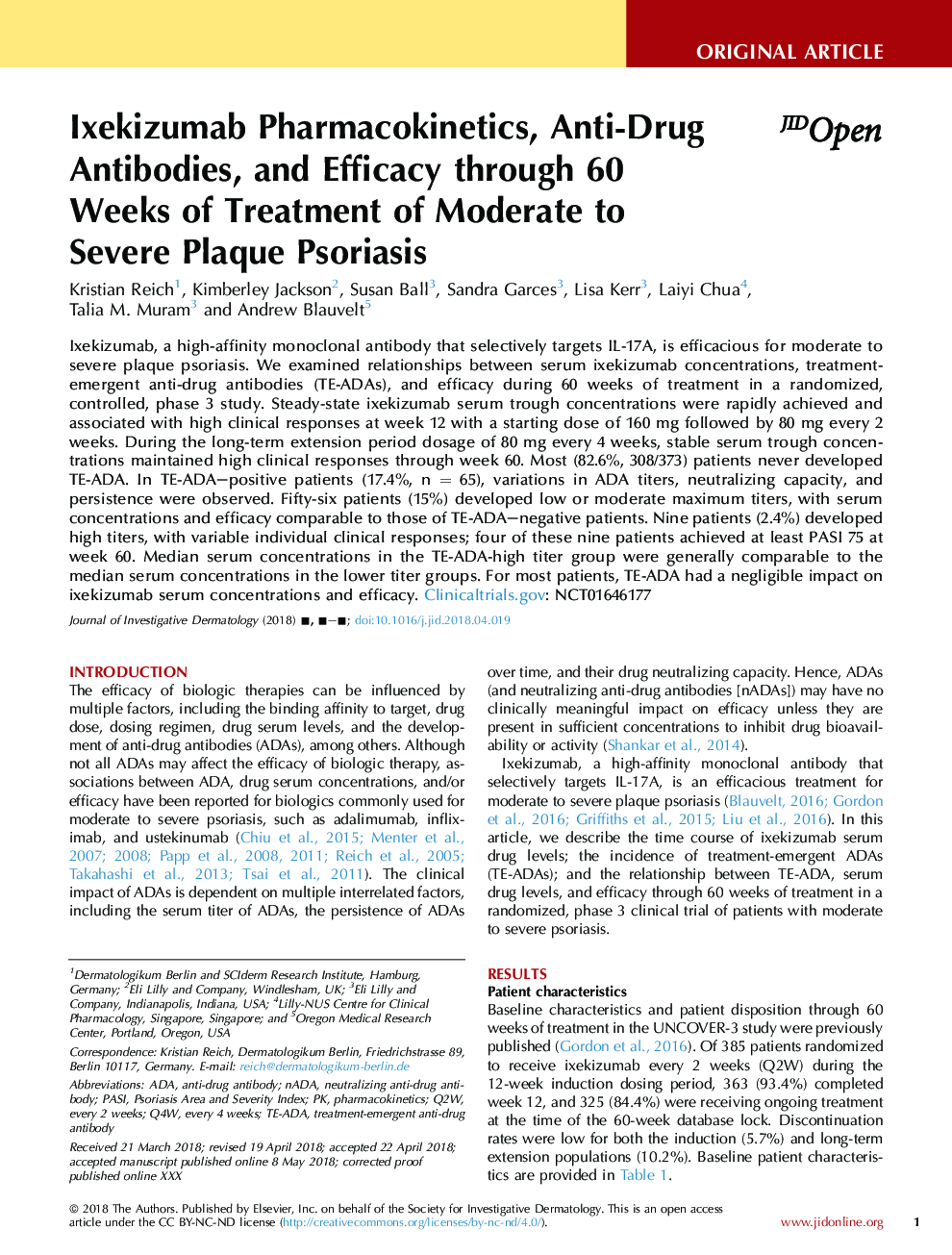| Article ID | Journal | Published Year | Pages | File Type |
|---|---|---|---|---|
| 10216997 | Journal of Investigative Dermatology | 2018 | 6 Pages |
Abstract
Ixekizumab, a high-affinity monoclonal antibody that selectively targets IL-17A, is efficacious for moderate to severe plaque psoriasis. We examined relationships between serum ixekizumab concentrations, treatment-emergent anti-drug antibodies (TE-ADAs), and efficacy during 60 weeks of treatment in a randomized, controlled, phase 3 study. Steady-state ixekizumab serum trough concentrations were rapidly achieved and associated with high clinical responses at week 12 with a starting dose of 160 mg followed by 80 mg every 2 weeks. During the long-term extension period dosage of 80 mg every 4 weeks, stable serum trough concentrations maintained high clinical responses through week 60. Most (82.6%, 308/373) patients never developed TE-ADA. In TE-ADA-positive patients (17.4%, n = 65), variations in ADA titers, neutralizing capacity, and persistence were observed. Fifty-six patients (15%) developed low or moderate maximum titers, with serum concentrations and efficacy comparable to those of TE-ADA-negative patients. Nine patients (2.4%) developed high titers, with variable individual clinical responses; four of these nine patients achieved at least PASI 75 at week 60. Median serum concentrations in the TE-ADA-high titer group were generally comparable to the median serum concentrations in the lower titer groups. For most patients, TE-ADA had a negligible impact on ixekizumab serum concentrations and efficacy. Clinicaltrials.gov: NCT01646177
Keywords
Related Topics
Health Sciences
Medicine and Dentistry
Dermatology
Authors
Kristian Reich, Kimberley Jackson, Susan Ball, Sandra Garces, Lisa Kerr, Laiyi Chua, Talia M. Muram, Andrew Blauvelt,
